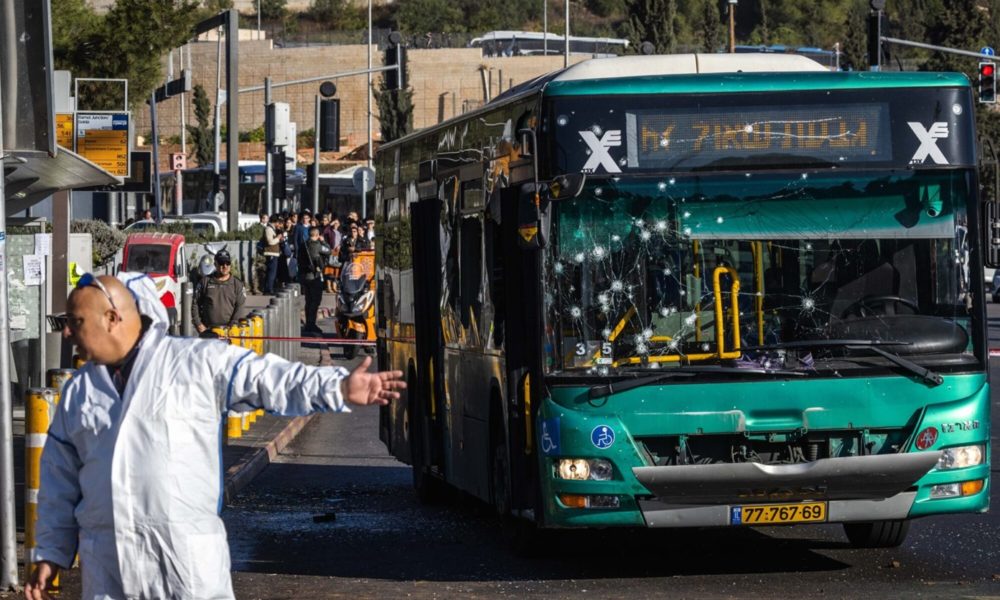Israel
Too close for comfort, say SA olim about bus bombings

South African olah and Jerusalem resident Ilanit Liberman and her husband usually catch a bus to work and university every day, but on the morning of 23 November, she was working from home and he was running late for his studies. “Thank G-d, because our final stop is right near where the bomb went off, and we usually arrive very close to the time when the bombing happened,” she told the SA Jewish Report on Wednesday, 23 November.
This former journalist was referring to two bombs that rocked bus stops at crowded entrances to Jerusalem early on Wednesday morning, killing a teenager and sending about 20 people to hospital, some in serious condition.
“If we had caught the bus, it would definitely have been a very different story,” says Liberman. “We get off a bit away from there, but we would have heard and seen what was happening. It’s a scary ‘what if’ situation. It hit close to home, as that’s a bus stop and area I know well, and I’ve taken buses from there numerous times. If I miss the bus to work, I usually run down to that bus stop to catch another bus that can drop me near my office. So, I’ve been there in the mornings, and it’s bustling and hectic. It was peak time. I’m shocked.”
Jerusalemites are on edge, she says, as this is the first time that this city has been hit by a bus bomb in years. However, there have been a wave of terrorist attacks in Israel over the past few months. They were mostly stabbings and car rammings, including in an attack in the West Bank last week that consisted of both, and killed three people.
A 16-year-old yeshiva student named Aryeh Shtsupak was killed in Wednesday’s Jerusalem bombing. Shtsupak, from Har Nof, a largely Orthodox neighbourhood, is believed to have held Canadian and American citizenship, according to local media reports.
Another South African olah who lives in Jerusalem, Dinah Poyurs, says she drives past the spot where the first explosion took place all the time. “I’ve always taken it for granted that the area was totally safe, and I’m sure the next time I drive past it will feel very different,” she says.
“Whenever there’s war or an act of terrorism in the country, there’s always an uneasy energy, but it sometimes doesn’t set in right away. One of the craziest things about living in Israel is that unfortunately, events such as this are nothing new, and the most important thing we can do is to keep living our lives and pray for safety,” Poyurs says.
South African oleh Philip Stodel lives about 20km east of Jerusalem, but happened to be in the centre of Jerusalem on a film shoot on Wednesday. He says “everything is bustling and looks very much like business as usual”. He isn’t anxious for his safety.
Zimbabwean and South African oleh Daniel Hasson is executive director at the Jerusalem Intercultural Center. “Our approach is that life must go on,” he says. “I was on my way to a course we’re hosting for diplomats about the city of Jerusalem. People asked if we would cancel, and the answer was obviously not.”
South Africa oleh Solly Kaplinski, who has lived in Jerusalem for 23 years, says, “I was driving to work when my wife called asking if I was okay. Once again there’s an awful déjà vu of the horrors of the second intifada and the devastating tragedy of bombs exploding in crowded places with traumatic effect. Once again, it instils a fear of ‘are we going to be able to get on buses safely? Are we going to have to look over our shoulders? Is this a new intifada?’ It’s a frightening thought for all Israeli citizens, whether they’re Jewish or Arab.”
This week’s bomb attacks are the first time in years that terrorists used bombs in a deadly assault against Israelis, and police say they believe the bombs were detonated remotely.
Photo credit: (Olivier Fitoussil Flash90 via JTA)